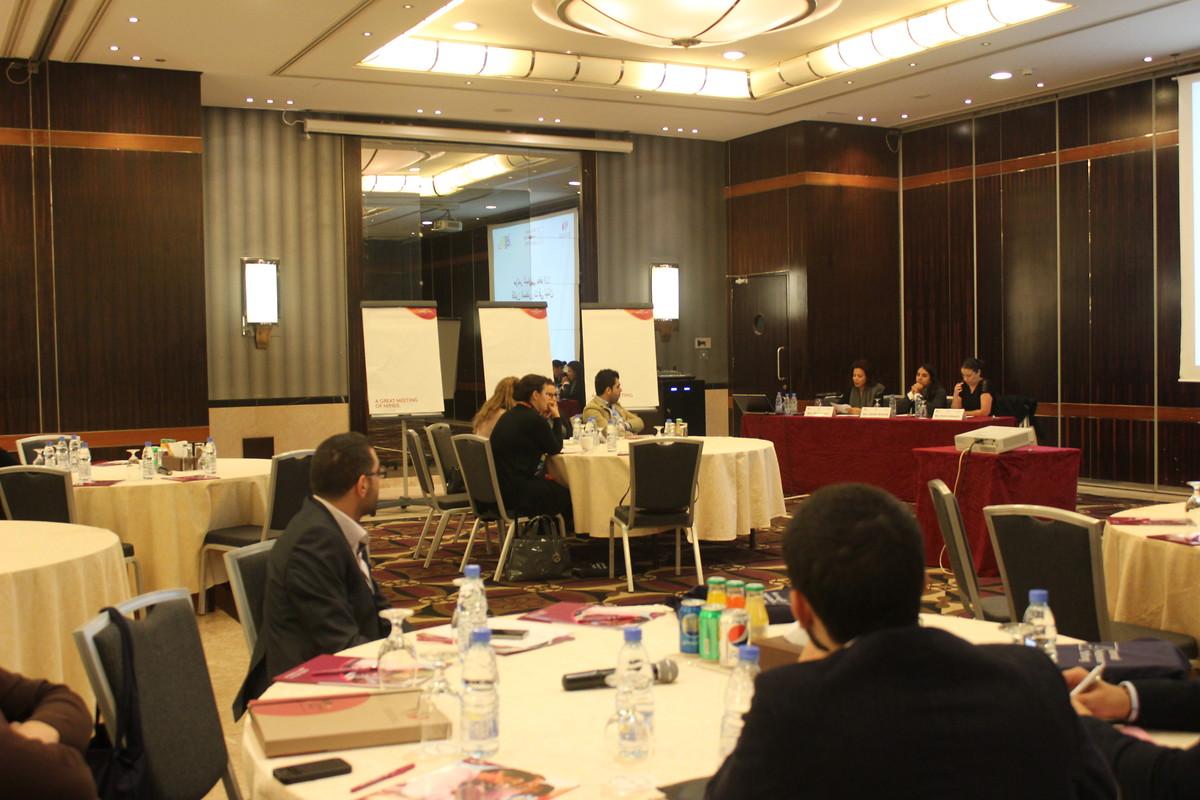The goal of the Youth Forum is to provide a platform of coordination among the youth from various backgrounds including NGOs and political parties. It aims to contribute to the sensitization on diversity and coexistence. Furthermore and in particular, the Youth Forum is meant to be a place for open discussion and assessing national policy. It promotes youth participation in public policies in Lebanon through allowing them to address recommendations and demands to the media and relevant authorities. Chosen by the members of the Youth Forum, Lebanese Drug Law was the topic for intensive discussions.
In her opening remarks, Hana Nasser, Administrative Director of KAS, welcomed the efficient participation of the youth. She underlined that the participation of youth in decision-making is key for democracy. Ms. Nasser pointed out the importance of the workshop’s topic and stated that imprisonment and humiliation are not the adequate and sustainable answer to drug addiction. Instead, it is necessary to support further treatment possibilities and reintegration mechanisms.
Furthermore, Sandy Mteirek from Skoun Association stated that Lebanon has a relatively modern drug law (1998). Nevertheless the given “right to request treatment” is not applied in practice. Instead, people are sent to jail, which leads to a further destruction of their life. Those people face discrimination and because of legal files struggle to find a workplace. The challenges, as Ms. Mteirek pointed out, are numerous, such as the so far unsuccessful sharing of information of the Ministry of Justice with all judges. Even though there is an addiction committee, founded in 2013, it is centralized and only available in Beirut. Also, the awareness of youth and their families about the drug law and the rights of the addicts is alarmingly low which leads also to violations during arrestment and investigation.
In the recommendations given by Skoun Association, Ms. Mteirek drew attention to the role of the ministries of health, education and social affairs in raising awareness. Furthermore she underlined the importance of creating centers for the Addiction Committee in all main areas of Lebanon in addition to the existing one in Beirut. As for the 1998 law, it was recommended to be modernized by integrating new means of treatment, and to be amended to include clear and precise definitions of some actions and allocating the rights and proportionate measure to each definition. Ms. Mteirek informed the audience that a draft law is currently in the parliament and asked the youth to play their role as part of political parties to advocate for approving this draft law.
Within two intensive working groups sessions the participants discussed and presented their propositions on how to prevent drug use amongst the youth in Lebanon and how to amend national drug policies. The participants agreed on the recommendations, which were presented by civil society organizations, and also reiterated the necessity for a multi-sectorial response, including the cooperation between several ministries and committees to gain more sustainable results. In addition, they added a number of recommendations, such as:
- Emphasizing the role of political parties in raising awareness amongst their respective youth wings
- Increasing awareness raising sessions at schools
- Developing the role of the media in raising awareness
- Differentiating between the “drug user”, “addict”, “promoter” and “trafficker”
- Recognizing the necessity for follow-up actions to integrate recovered individuals in society after treatment
- Offering public open spaces where the youth can spend time doing activities for social value




